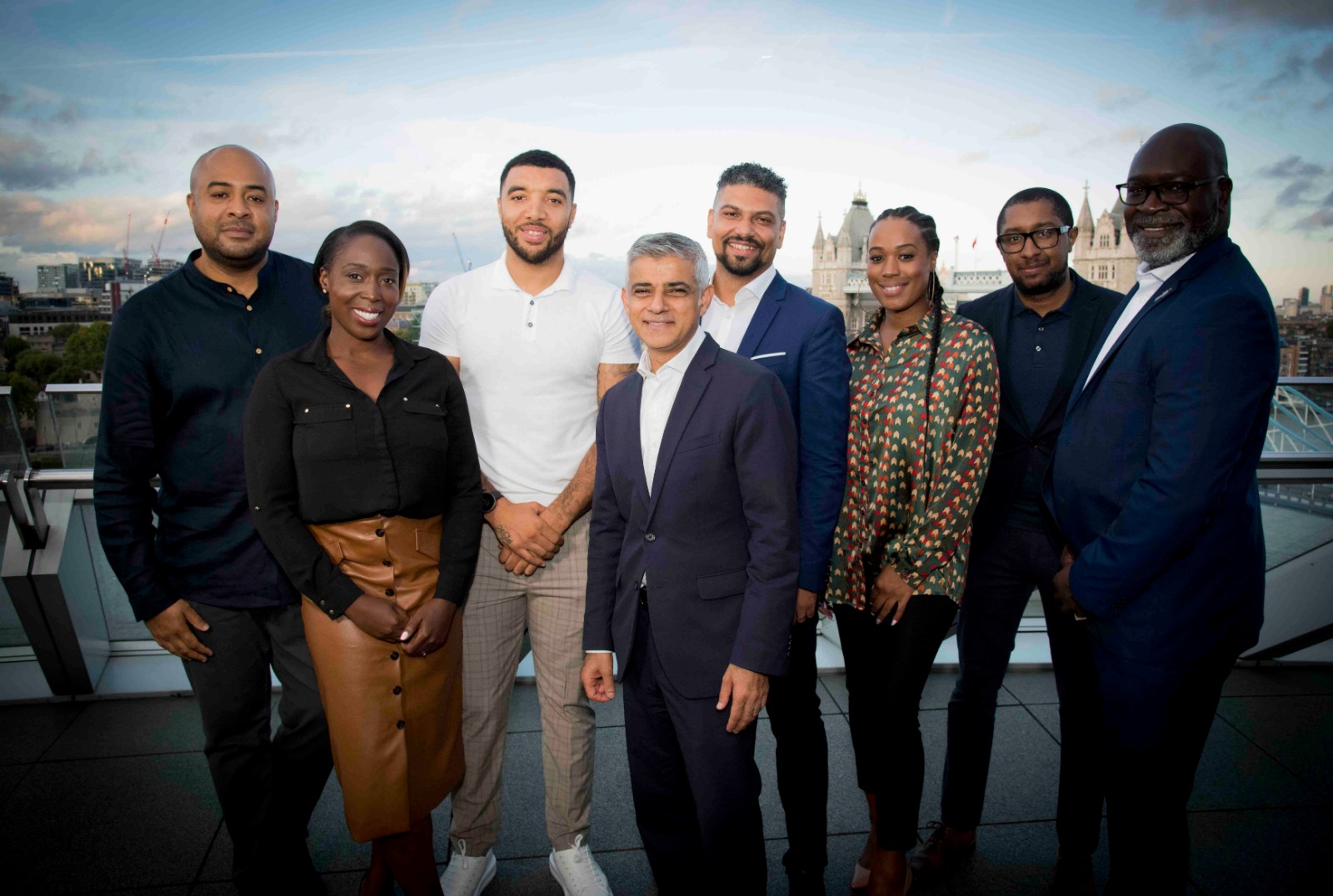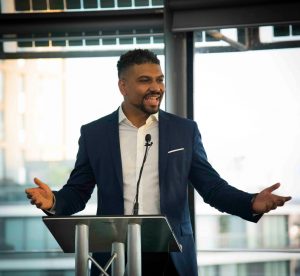“We Need to See Greater Representation in Positions of Power” Leon Mann on the Diversification of the Sports Media

In 2008 a secret meeting was held at Soho House Hotel, London.
Usually this would be the first sentence of an Agatha Christie novel, however in this case it was Leon Mann acting as author.
Mann led a group discussion about the lack of diversity in the British media, and from it the Black Collective of Media in Sport (BCOMS) was born.
Mann is a natural speaker, and grabbed the attention when he took to the podium at the recent launch of the Diversification of the Sports Media Programme at City Hall with London Mayor Sadiq Kahn, but the statistics that rolled off the tip of his tongue did not need a great orator, they spoke for themselves.
Almost 350 journalists working for British media organisations attended the biggest sporting occasions of 2018, including the FIFA Men’s World Cup, the Winter Olympics and the Paralympics. From BCOMS research, the numbers that came back were startling:
- No BAME women were represented in any National mainstream newspaper position.
- Just a single black writer attended the World Cup for a National mainstream newspaper.
- Less than 10% (32) of journalists were from a BAME background.
- 27 of those were either current or ex-professional athletes.
It is this last statistic that Mann expands upon: “If you are from the black community and you’re looking at television, and you’re listening to the radio, you can see and hear black voices and black faces.
“But a lot of the time they’re people who have won gold medals in the Olympics, they have played 400 games in the premier league or they have played for England, and while we are proud of those people and those people worked hard to get to where they have got and have had challenges, largely their opportunity has come as a result of their life as an athlete.”
Mann added: “Essentially what you’re saying to my children is you better go and play in the Premier League, or you better go and get an Olympic medal, before you consider stepping in front of a camera.”

Being given an opportunity
So, how do aspiring journalists from BAME backgrounds, who are not current or former athletes, break into an industry that has a history of not being open to them?
“We need to see greater representation in positions of power. Because ultimately those people will lead, A. the narrative and B. the action round the push for greater diversity, not only across their shows or their newspapers but across the industry, because industry leaders are the people with the power in their hands,” explained Mann.
“I have been into a number of meetings with editors across the industry and they all look and say to me ‘well we can’t find black writers, we’ve looked everywhere, the writers that are around are too junior to be giving them positions where they will be more visible etc, etc,’ and my response to them is, well the power is in your hands,” Mann states. “Danny Taylor, as an example, earned all of his opportunities, but he was given an opportunity by somebody at some point.”
Mann continued with his thoughts about industry leaders and the power they have, “It’s up to them ultimately. They can give the job to the person who has been there the longest, but as far as I understand, business and life shouldn’t work that way.
“People keep talking to me about meritocracy and not box ticking, but actually the meritocracy of your product can be the value of your diversity in the range of different views and ways to approach things by having a diverse workforce.”
I suggest to Mann there is not only a need to diversify the pundits or journalists but the actual content itself needs to be aimed at a more varied audience. He agrees and uses BBC Two show MOTDx as an example of how this is being done.
“If you look at the choice of guest presenters, with the likes of Craig Mitch, Liv Cooke, Chelcee Grimes, Reece Parkinson, Josh Denzel, they represent a different demographic to the traditional presenters such as the Dan Walkers, Gary Linekers and Mark Chapmans. Obviously the BBC are going after an audience that those people bring in that they believe they don’t have, and that will be based on research.
“So quite clearly there is a strategy there, in terms of identifying these presenters have an audience that the BBC wishes to have, and the very fact that they have given that show such a prominent spot [Thursdays 7pm on BBC Two] and they haven’t hidden it away during a different time where it is going to be less popular, shows that they really believe there is an opportunity to reach an audience that perhaps they haven’t done effectively in the past.”
Popularity of BCOMS events
The BCOMS events are growing ever more popular with the all important industry leaders as well, as Mann says, “We have huge numbers turning up to our events, we have lots of different contributors to what we are doing.”
However it is not all plain sailing for the BCOMS group, but that is healthy according to Mann: “Is there a dynamic where people will sometimes disagree with what we’re doing? Well yeah at times, but that’s healthy.
“That’s what diversity is, it’s diversity of thought, so I’m totally open to people saying you’re doing things the wrong way or you could do things this way, and having a debate or discussion about that because ultimately what’s the most important thing?
“Is it about doing it Leon’s way or the BCOMS board’s way, or is it about doing it the best way? And that might be something we’re missing at the moment, so we’re always totally open. We’re representative of a community, not of individuals.”
As far as representatives go, Mann is a very impressive one, and it seems like Leon’s and the BCOMS board’s way, very much is the best way.
Photographs courtesy of Leon Mann.